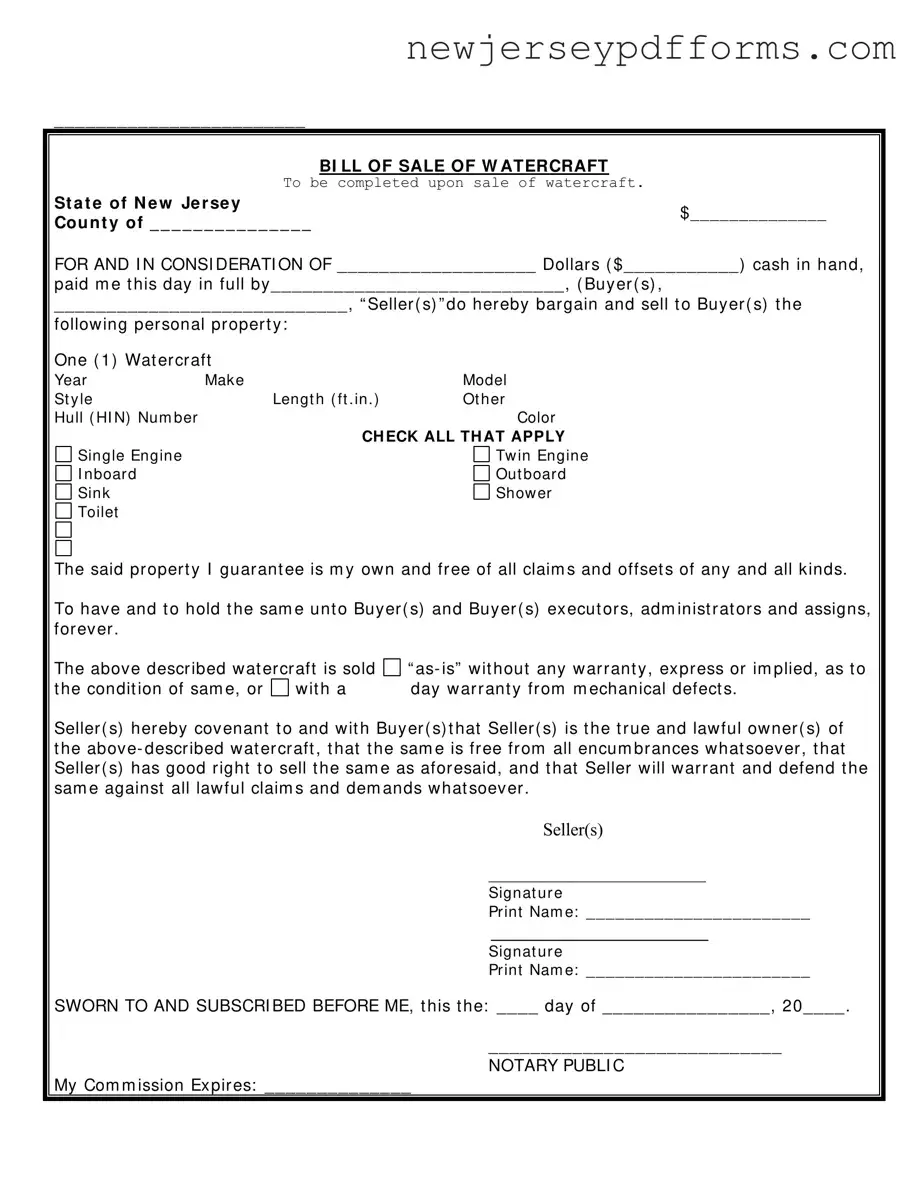Printable Nj Boat Form
The NJ Boat Form is a legal document used in New Jersey to facilitate the sale of a watercraft. This form serves as a bill of sale, outlining the details of the transaction between the buyer and seller, including the price and description of the watercraft. For anyone looking to buy or sell a boat in New Jersey, completing this form is an essential step in ensuring a smooth transfer of ownership.
Ready to fill out the NJ Boat Form? Click the button below to get started!
Open Editor Here

Printable Nj Boat Form
Open Editor Here

Open Editor Here
or
Download Nj Boat PDF Form
Complete the form before time runs out
Edit your Nj Boat online and complete it quickly.